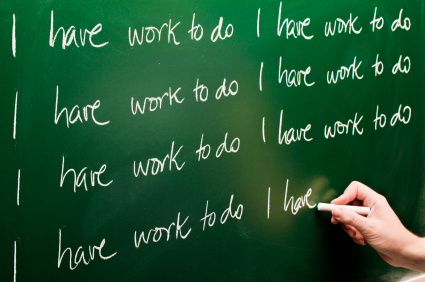Note: This post has been updated and incorporated into 10 Ways to Be a Better Learner – an essential read for the serious lifelong learner.
This is the final installment in my 10 Ways to Be a Better Learner series (click the link to access the previous nine). It has taken me a while to post these, partly owing to other obligations, but perhaps even more because I have tried to be very deliberate in thinking through them. Deciding on the last one has been particularly challenging, but I have finally come back to where I started on it: the best learners embrace responsibility. You can spin that a lot of ways, but I have two main points in mind:
1. The best learners recognize that their learning is not purely about themselves – it is an ongoing part of being someone who contributes to the world in positive, productive ways.
I don’t mean this in the sense of simply being employable – though certainly continuous, lifelong learning is more important in that arena than ever. I mean it in the sense of having the capacity to engage with and help solve problems, both large and small; to help make the most of opportunities that arise throughout our lives. To do these things as much for the positive impact they have on others and the world around us as for ourselves. There is no way to do this effectively other than through continuous, lifelong learning.
We are, of course, free to do otherwise – that’s why this is a question of embracing responsibility. We must choose which path to take.
2. The best learners go to great lengths to learn well and learn correctly.
For this one, I’m borrowing a page from John Dewey (see also his “guest” post here on 4 Essential Attitudes for Effective Lifelong Learners). In Democracy and Education, Dewey writes about responsibility as:
…the disposition to consider in advance the probable consequences of any projected step and deliberately to think them through: to accept them in the sense of taking them into account, acknowledging them in action, not yielding a mere verbal assent.
In more contemporary speak, you do the work, and you do it because you agree with #1 above and are motivated by it (along with other motivations you may have).
Again, there are plenty of shortcuts – and plenty of evidence in the news every day that people are taking them. We are all free to take the shortcuts, but again – that’s why this is a question of embracing responsibility.
Those who choose to do the work learn “what is involved in really knowing and believing a thing” – and they revel in it.
Jeff
P.S. – Again, you can find all of the part of this series by clicking 10 Ways to Be a Better Learner. I welcome your comments on any of the posts, and I encourage you to use the social links (Twitter, Facebook, StumbleUpon, etc) at the bottom and to the left of each post to share them with others.






David – Yes, certainly. I had intended to convey that point here by specifying “learn well and learn correctly” as well as in earlier parts of the series that relate to building a learning network and using technology effectively. Nonetheless, your comment makes me realize I need to bring the point out more clearly. It is not just “do the work,” but rather “do the right work in the right way.”
Many thanks for commenting – Jeff
I wonder if we can consider taking responsibility to also entail actively seeking out the information and experiences? The blog mentions “do the work”, but don’t we also have an obligation to make sure it is the right work?
Pingback: Splash: Refreshment For Your Small-Staff Organization » Blog Archive » Friday Top Five: Seasons changing
Thanks so much, Micah. Glad you liked it. I will be converting this and the other posts into an eBook over the coming weeks, so I welcome any feedback you have on any of the posts. – Jeff
Great stuff, Jeff. I look forward to getting caught up on the st of this series.
Micah Yost
@GroupThrive